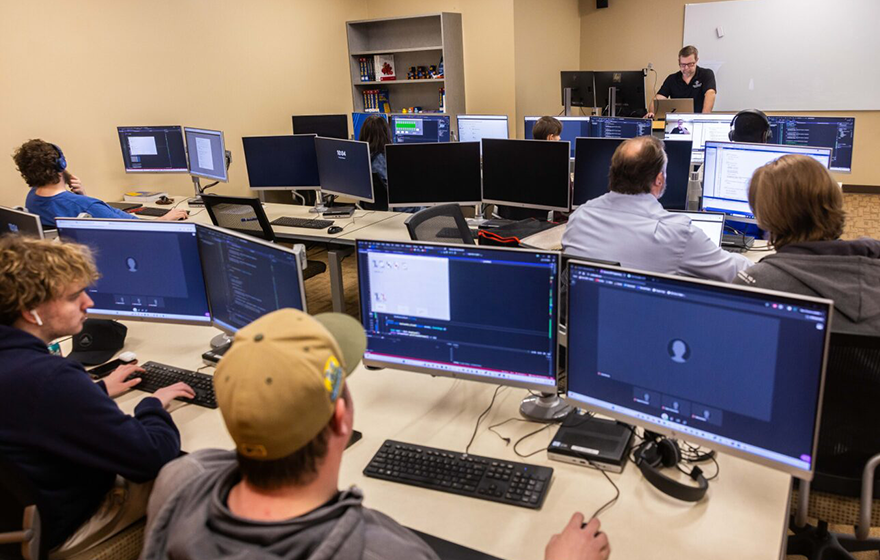Committed Developers vs. In-House Teams: Which Is Right for You?
The decision between making use of specialized designers and preserving an in-house group is a considerable one that can impact the trajectory of your jobs and total business technique. On the other hand, in-house teams contribute to a cohesive business culture and a nuanced understanding of long-lasting goals.
Recognizing Dedicated Developers
The growing demand for specialized skills in the technology sector has actually brought about the emergence of committed developers as a practical option for several companies. These specialists are commonly gotten on a project basis, permitting firms to take advantage of specific proficiency without the lasting commitment related to permanent hires. Dedicated programmers are usually ingrained within a customer's team, giving versatility and scalability to meet project requirements.
This version enables organizations to access an international skill swimming pool, which is especially beneficial in a rapidly evolving technical landscape. Devoted designers can be sourced from numerous geographical places, guaranteeing that firms can find the best capability at affordable rates. They often bring a wide range of experience and expertise, having functioned on diverse projects across different markets.
Moreover, specialized developers can concentrate solely on the jobs at hand, improving productivity and effectiveness. They are equipped to integrate seamlessly right into existing workflows, working together closely with in-house groups to accomplish task purposes. This approach not only decreases the worry of recruitment and training but likewise permits companies to stay active, adapting swiftly to transforming market demands and technical developments.
Benefits of In-House Teams

Moreover, internal teams tend to have a deeper understanding of the business's mission, worths, and objectives. This alignment can boost staff member interaction and motivation, as employee feel more connected to their job and the organization's success. In addition, having a dedicated internal team permits better placement of strategies and purposes, as these members are regularly focused on the company's concerns.
Internal teams also facilitate quicker decision-making processes, as they can respond more swiftly to modifications and obstacles. The well-known partnerships and familiarity with business methods permit streamlined operations and decreased miscommunication. Inevitably, the combination of a natural society, alignment with business goals, and effective interaction makes in-house teams an important property for numerous companies, particularly those seeking to grow lasting growth and advancement.
Price Factors To Consider
When reviewing cost considerations, both specialized programmers and in-house teams present distinctive financial ramifications for companies. Engaging devoted designers generally entails a pay-per-project or hourly rate design, which can be economical for services with changing task needs. This approach permits flexibility in scaling sources up or down, guaranteeing that business only spend for the solutions they require.
In comparison, in-house teams entail fixed expenses, consisting of incomes, benefits, and overhead costs such as office room and devices. While this model provides over here greater control and immediate accessibility of sources, it might lead to greater long-term expenses, particularly if the work does not justify a full time team.
Moreover, firms must consider the covert expenses related to employment and training of in-house staff members, which can additionally strain budgets. In many cases, the moment and resources invested in taking care of an in-house team can interfere with the organization's core organization objectives.

Task Monitoring and Flexibility
Job management and flexibility are critical variables that affect the option between dedicated designers and internal groups. Dedicated groups typically have developed procedures for taking care of jobs effectively, leveraging details approaches like Agile or Scrum, which help with repetitive development and flexibility.

Eventually, the selection my company between devoted designers and in-house teams rests on the wanted level of flexibility and the specific job monitoring needs. Firms need to review their functional characteristics, job complexity, and resource schedule to establish which option straightens ideal with their calculated objectives.
Making the Right Choice
Choosing the best development approach-- in-house groups or committed designers-- needs a careful assessment of numerous variables that align with a company's strategic objectives. dedicated development team. Consider the nature of the task. If it requires specialized abilities or a quick scale-up, committed designers might be better. Alternatively, internal teams can supply far better connection and integration with existing personnel.
Following, examine your spending plan. Committed designers usually present an economical service for temporary jobs, while in-house groups might sustain higher long-term costs due to wages, advantages, and expenses expenses. Examine the degree of control and cooperation wanted; in-house groups normally cultivate more powerful interaction and alignment with company culture.
Furthermore, consider the time framework. If instant results are necessary, committed developers can be onboarded quickly, whereas developing an in-house group requires time for employment and training. Consider the long-term vision of your company. If constant advancement is important, spending in an in-house group might produce better returns gradually. Eventually, the choice rests on a thorough analysis of these aspects, making sure placement with your business's general objectives and operational requirements.
Verdict
Finally, the decision between dedicated programmers and in-house teams depends upon job requirements and business purposes. Dedicated developers give flexibility and specific competence, making them appropriate for short-term initiatives. Conversely, in-house teams cultivate a natural society and much deeper placement with long-term goals. Cautious analysis of budget plan constraints, project timelines, and preferred directory control levels is vital for determining the most suitable technique, guaranteeing alignment with strategic priorities and operational efficiency.
The decision in between making use of dedicated developers and keeping an in-house group is a substantial one that can impact the trajectory of your jobs and overall company technique.Project monitoring and adaptability are important factors that influence the choice in between dedicated developers and in-house groups. offshore software development.In contrast, internal groups may succeed in keeping a constant project monitoring framework due to their knowledge with the company's culture and lasting objectives. Dedicated programmers usually provide a cost-effective solution for temporary tasks, while internal groups might incur higher long-lasting costs due to salaries, advantages, and overhead prices.In conclusion, the decision between specialized developers and in-house teams pivots on project needs and business goals